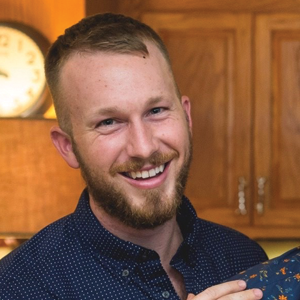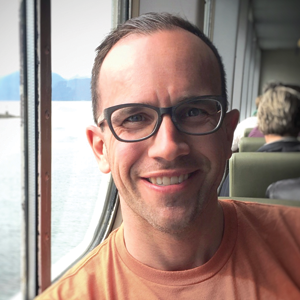In recent years, we’ve gained two HIV prevention options: pre-exposure prophylaxis (PrEP) and the knowledge that “Undetectable=Untransmittable” (U=U). But has this changed our sex lives? We spoke to two guys to hear how these are affecting the sex people have across viral status.
Interviews by RonniLyn Pustil
 |
DILLON WALDRON, 28Taking PrEP on and off since 2015 |
I take PrEP every day. For the first two months I had some side effects—upset stomach, headaches and digestive issues—but then they went away. I took Gravol now and then to deal with them. PrEP gives me peace of mind because I’m able to make sure I stay negative. When I take it every single day, I no longer have to worry about HIV, and I can get tested and not have the same concern that I had before when waiting for my results.
U=U allows you to have more productive conversations with people who are HIV positive and undetectable because you know that they’re among the safest people to have sex with, in terms of HIV risk.
Now, you’re most likely to contract HIV from someone who doesn’t know they have it. But if I take PrEP, then I know I won’t get HIV. Before, there was always a risk, big or small. Now, with me being in control of it, I don’t have to worry about risk.
PrEP and U=U are both ways of making sure that people have peace of mind and can be confident with a sex partner. They help to destigmatize having sex with HIV-positive people. In the past, I’d ask the other person about their status and they would ask me, but with PrEP I can take the pressure off. Rather than asking about them, I’m now talking about myself more. I don’t need to ask people what their status is now, because I can say “I’m on PrEP.” And then from there, they can decide whether or not to disclose. So, PrEP not only allows people to talk more openly but it also destigmatizes HIV-positive people, and that’s something that needs to happen. I definitely feel like PrEP is helping in that sense.
Recently I’ve been finding that more people are aware of U=U. I think when you say “U=U” most people know what you’re saying; overall the basic knowledge is there, at least for a lot of gay cis males. It’s on Grindr, it’s on Scruff, it’s on RuPaul’s Drag Race, and it’s definitely talked about in gay cis male culture. More and more, you see “U=U” on profiles of HIV-positive people, even on some HIV-negative people’s profiles. Maybe it’s a way of encouraging people to destigmatize HIV, maybe they have a partner who is HIV positive or maybe they’re acknowledging that they want to have a conversation about it.
I want to see HIV eradicated in my generation. I have confidence that we can make that happen if we have the political will to do it. I think that PrEP and U=U have both given people peace of mind, and as we destigmatize the disease, we get closer to eradicating it.
 |
SHAD TURNER, 43Diagnosed with HIV in 2014 |
I was diagnosed in 2014, so I wasn’t living with HIV for very long before PrEP became widely available. And after I was diagnosed, I continued to be in a monogamous relationship for three years, so I wasn’t running in all the same circles as PrEP users who were single or in open relationships.
I see the wide availability of PrEP and the increasing awareness of U=U as two separate but related issues. The availability of PrEP seems to be coming hand-in-hand with the understanding that U=U. With PrEP and U=U, I am generally less reluctant about disclosing my status to friends or people I’m chatting with (particularly people on PrEP, who I think are more likely to be aware of U=U). I suspect that guys on PrEP will be more informed about what U=U means—and less likely to behave in ways that stigmatize me due to my HIV-positive status—than guys who are not.
On the other hand, it’s sort of re-stigmatizing, because the common question—at least in the online chat scene—is “are you on PrEP too?” Guys are very quick to state that they’re on PrEP. Many of these same guys have asked me if I am on PrEP also, even though it is hard to rationalize their question about my status. I feel a little bit sheepish not being able to tell them, “Yes, I’m on PrEP,” even though I know that being undetectable means that I don’t pose a risk of transmitting HIV.
When people are on PrEP and make inquiries into my HIV status, I take that as an indication of a “you can’t be too careful” mindset. I address the question in a nuanced way that doesn’t result in me having to disclose my health information to a stranger so bluntly. I don’t want to be put in the position of having to choose between making an untrue statement about my HIV status and disclosing my status under duress or on account of a perceived duty that doesn’t necessarily exist.
In a situation like that, I’ll usually turn the tables and answer the question by asking another question: “You’re on PrEP, so you’re covered. What is it that you’d really like to know?” That line of conversation sometimes ends the conversation completely. Or, I’ll just simply flat out say “You don’t need to be worried about that. You’ve already told me that you’re on PrEP, so we’re good.”
From the tone of the conversation today, even compared with three or four years ago, it seems to me that people are much more receptive to guys being sero-different. Certainly, people who have been researching PrEP or are on PrEP are going to come across the U=U message. The other HIV-positive guys I’ve spoken to about this are not as hesitant as they once were to push back a bit more assertively and do some of that education themselves. I’m running into a lot more people who are very casual and nonchalant about having sex with someone who is undetectable; these are different people from those asking the question, “Are you on PrEP?”
On the whole, I think more open conversations are happening and they’re more sophisticated and nuanced. That said, there’s always going to be a core group of guys who will insist on PrEP or condoms for HIV prevention because “you can’t be too sure.” Often, these people don’t even consider that being undetectable is an option. Very often, people’s inquiry still is just a one-word question: “Neg?” It’s a leading question and it forces people to either voluntarily self-disclose to a near stranger or be dishonest about their status.
Overall, I think there is a general improvement in the atmosphere with regards to stigma because people are generally more educated and aware of the facts and their options. But that being said, I think there’s now a new kind of stigma directed at non-PrEP users. I think that the core group of people who adopted that stigmatizing mentality before are still doing it now. It seems as though there are now two different tiers of people: those who are taking PrEP and those who are not.
PrEP has had a much stronger impact than the U=U campaign on my sex life. I live in a conservative part of the country, and here there seems to be less of an appetite for nuanced viewpoints on HIV risk. The U=U messaging still requires navigating the generally held (but flawed) understanding that if you have HIV you must disclose before having condomless sex, period, regardless of viral load.
U=U in and of itself doesn’t overcome misinformation about the state of the law. People think that the criminalization of a positive person who has sex with a negative person suggests a risk, regardless of U=U. They think there’s got to be a reason why the law is the way it is. I think that remains the unspoken spectre in the back, behind all of this chipper campaigning about scientific discovery.
